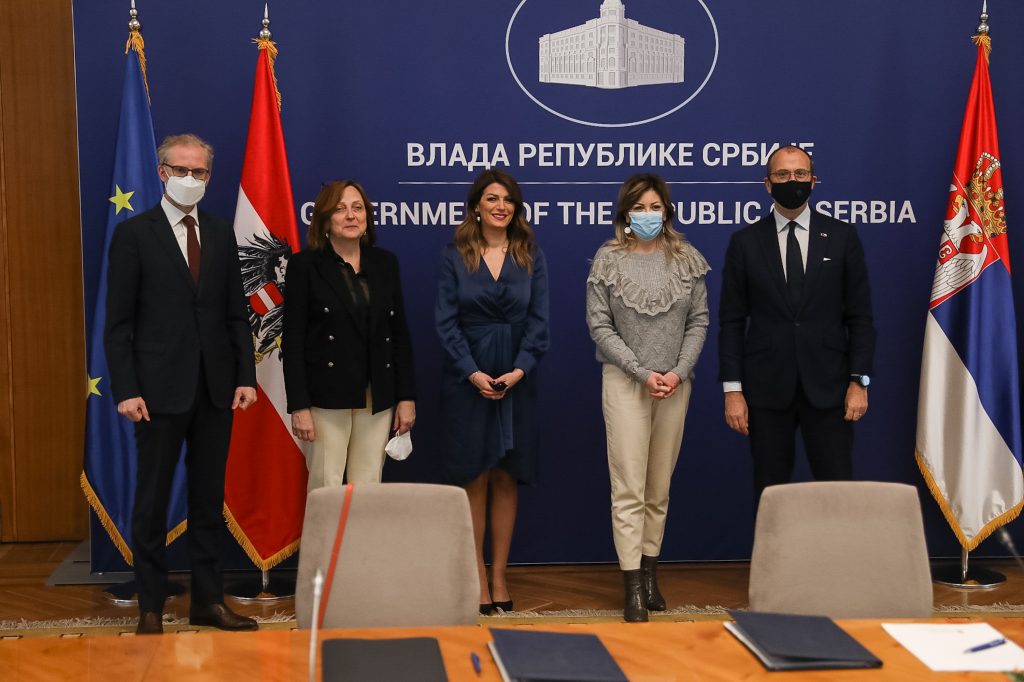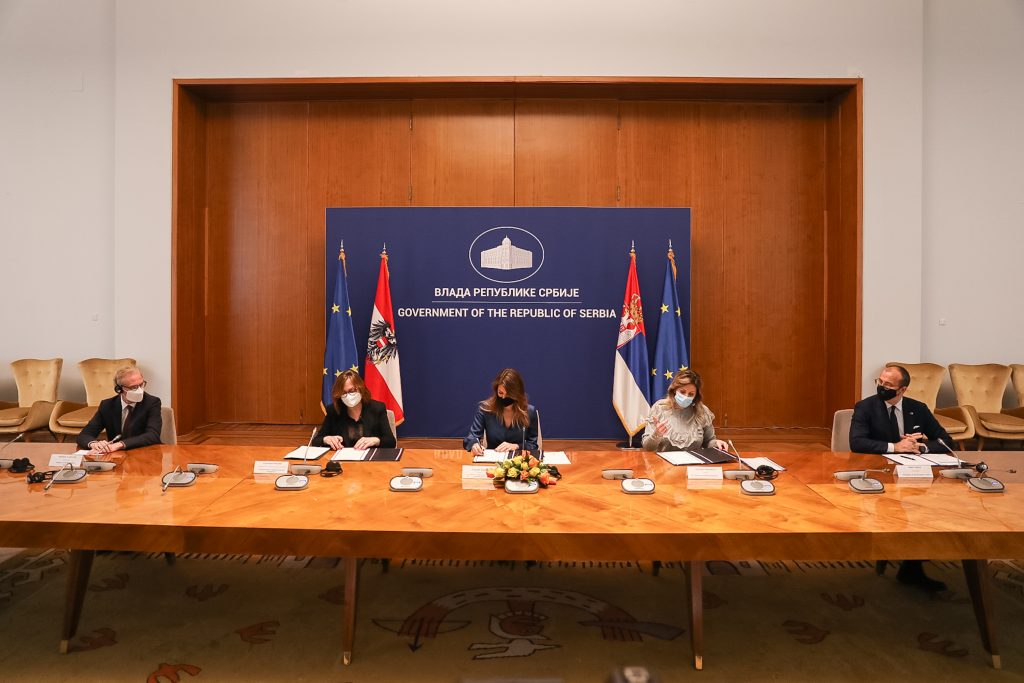Rollout of fibre broadband infrastructure to help improve the quality of life in the countryside
- EBRD provides €18 million loan for fibre broadband rollout in Serbia’s countryside
- Bilateral donors to the WBIF support the project with €7 million grant
- Improved access to education and information to students and people in rural areas

Rural areas in Serbia with around 90,000 households and 600 schools and public institutions will gain access to fast broadband thanks to a government digitalisation project supported by the European Bank for Reconstruction and Development (EBRD) and bilateral donors under the framework of the Western Balkans Investment Framework (WBIF).
An €18 million EBRD loan and a €1.7 million WBIF grant will allow Serbia to finance the design and construction of fibre broadband infrastructure in rural regions of the country. The project is part of Serbia’s initiative to promote digitalisation as a driver of economic growth and to position the country as an IT development hub.
Currently, only 69 per cent of rural Serbian households are connected to fixed broadband, compared with 85 per cent in urban areas (based on data from 2019). This gap significantly hampers access to economic opportunities for a large share of the population. Covid-19 lockdowns around the world have demonstrated that high-speed internet is crucial to work from home, continue education at all levels, access medical and financial services or simply maintain communication with the external world.
Even before the coronavirus pandemic lack of broadband connections for rural schools had been identified as a growing problem for Serbia – one-quarter of all pupils attend a rural school and in recent years rural enrolment growth has outpaced growth in all other school locales. Without adequate high-speed internet infrastructure, rural schools and their students risk being left behind their peers in urban areas.
Zsuzsanna Hargitai, EBRD Regional Director, Western Balkans, said: “Being born in a rural area was identified as one of the factors for inequality of opportunity in EBRD regions, including Serbia. Creating better links – both physical and technological – between urban and rural areas helps to ensure a better quality of life in rural zones and prevent the Serbian countryside brain drain.”
Tatjana Matic, Minister of Trade, Tourism and Telecommunications, said: “The ultra-fast broadband access will reach about 90,000 households in rural areas and will enable a completely new perspective for the population, especially for children and youth in those areas. Providing a modern digital education environment and affordable digital services will enhance local capacity and economic development, contribute to regional development and connectivity and towards alignment with European legal frameworks and our accelerated progress towards European integration.”

Nikolaus Lutterotti, Austrian Ambassador to Serbia, said: “This digital infrastructure project is a crucial endeavour of the Serbian government that not only promises socio-economic gains in rural areas but also facilitates a range of new opportunities in digital connectivity. The WBIF Bilateral Donors are therefore greatly pleased to support its implementation with a grant for technical assistance.”
Sem Fabrizi, Ambassador of the European Union to Serbia, said: “Digital technologies are revolutionising the way we learn, work and live as individuals and as a society. Each person needs the right skills, knowledge and confidence to benefit from the full potential of digital technologies. Lack of these skills, on the contrary, has a negative effect on employability and life quality.
This ‘next-generation broadband connectivity’ project will create the necessary preconditions for the social and economic development in the rural parts of Serbia without access to a broadband network (so called white zones). Together with other members of Team Europe – the EU is proud to support the digital agenda of Serbia, particularly to give the new generations, the necessary education tools during the pandemic.
The Western Balkans Investment Framework (WBIF) supports socio-economic development and EU accession across the Western Balkans through the provision of finance and technical assistance for strategic investments. It is a joint initiative of the European Union, financial institutions, bilateral donors and the governments of the Western Balkans. The largest individual cumulative pledges to date have been made by Norway, Sweden, Austria, Germany, Italy, and the United Kingdom. Austria is the current WBIF Co-Chair.
To date, the WBIF has allocated €1.3 billion in grants for €20.8 billion estimated investments in well connected transport, energy and digital networks, renewable energy and energy efficiency, water supply and wastewater systems, flood protection, education, research and cultural establishments, healthcare and judicial facilities, which are crucial for sustainable development in the region.